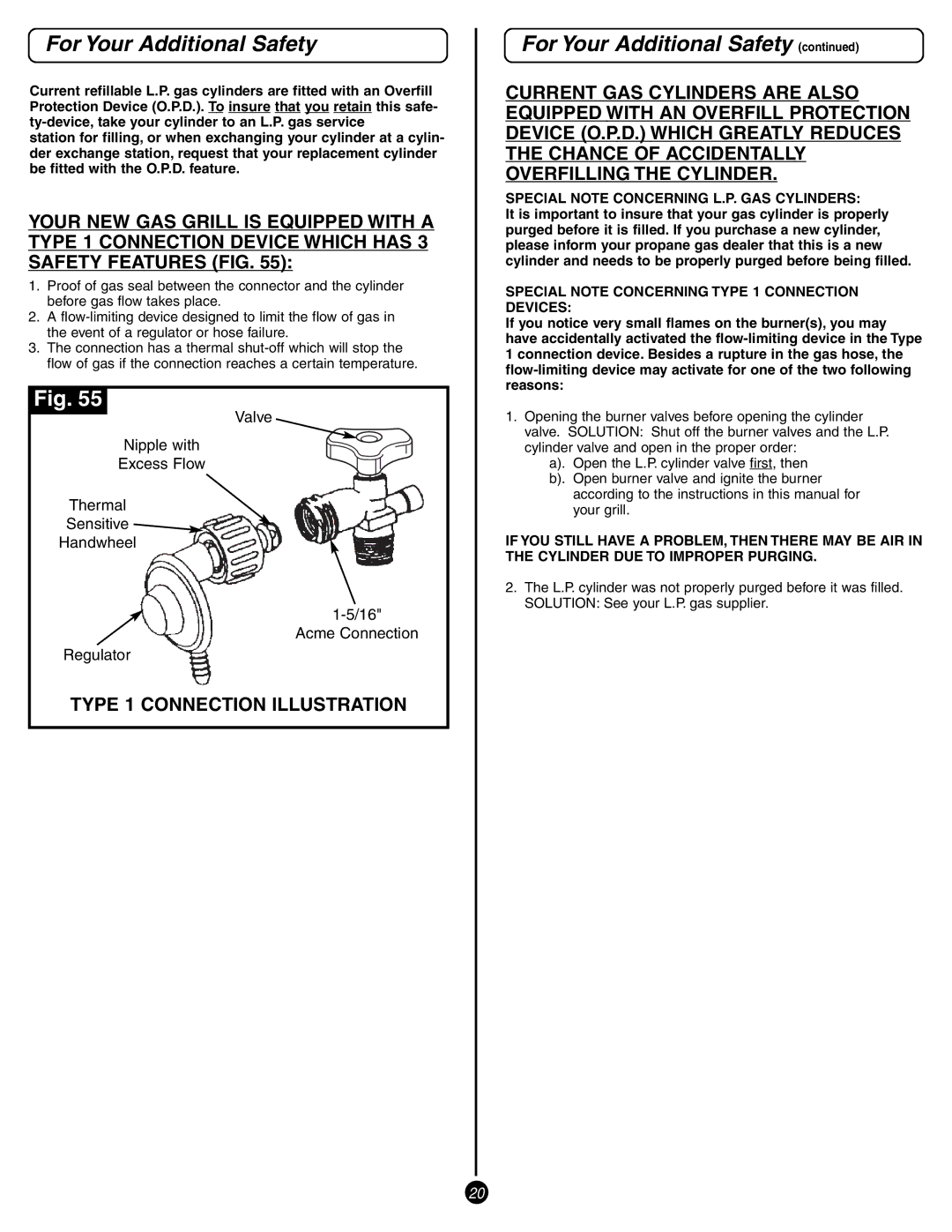
For Your Additional Safety
Current refillable L.P. gas cylinders are fitted with an Overfill Protection Device (O.P.D.). To insure that you retain this safe-
station for filling, or when exchanging your cylinder at a cylin- der exchange station, request that your replacement cylinder be fitted with the O.P.D. feature.
YOUR NEW GAS GRILL IS EQUIPPED WITH A TYPE 1 CONNECTION DEVICE WHICH HAS 3 SAFETY FEATURES (FIG. 55):
1.Proof of gas seal between the connector and the cylinder before gas flow takes place.
2.A
3.The connection has a thermal
Fig. 55
Valve
Nipple with
Excess Flow
Thermal
Sensitive ![]()
Handwheel
Regulator
TYPE 1 CONNECTION ILLUSTRATION
For Your Additional Safety (continued)
CURRENT GAS CYLINDERS ARE ALSO EQUIPPED WITH AN OVERFILL PROTECTION DEVICE (O.P.D.) WHICH GREATLY REDUCES THE CHANCE OF ACCIDENTALLY OVERFILLING THE CYLINDER.
SPECIAL NOTE CONCERNING L.P. GAS CYLINDERS:
It is important to insure that your gas cylinder is properly purged before it is filled. If you purchase a new cylinder, please inform your propane gas dealer that this is a new cylinder and needs to be properly purged before being filled.
SPECIAL NOTE CONCERNING TYPE 1 CONNECTION DEVICES:
If you notice very small flames on the burner(s), you may have accidentally activated the
1.Opening the burner valves before opening the cylinder valve. SOLUTION: Shut off the burner valves and the L.P. cylinder valve and open in the proper order:
a). Open the L.P. cylinder valve first, then b). Open burner valve and ignite the burner
according to the instructions in this manual for your grill.
IF YOU STILL HAVE A PROBLEM, THEN THERE MAY BE AIR IN THE CYLINDER DUE TO IMPROPER PURGING.
2.The L.P. cylinder was not properly purged before it was filled. SOLUTION: See your L.P. gas supplier.
20
